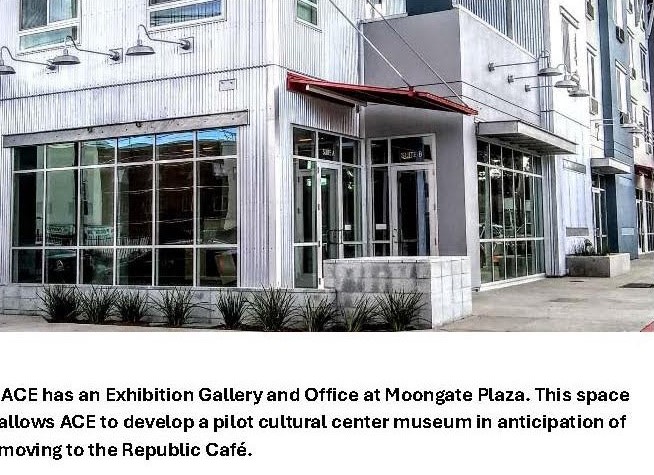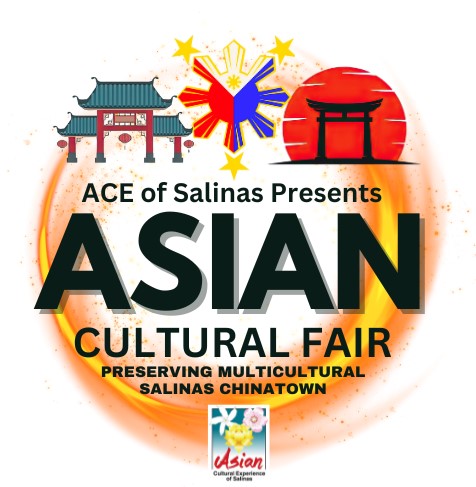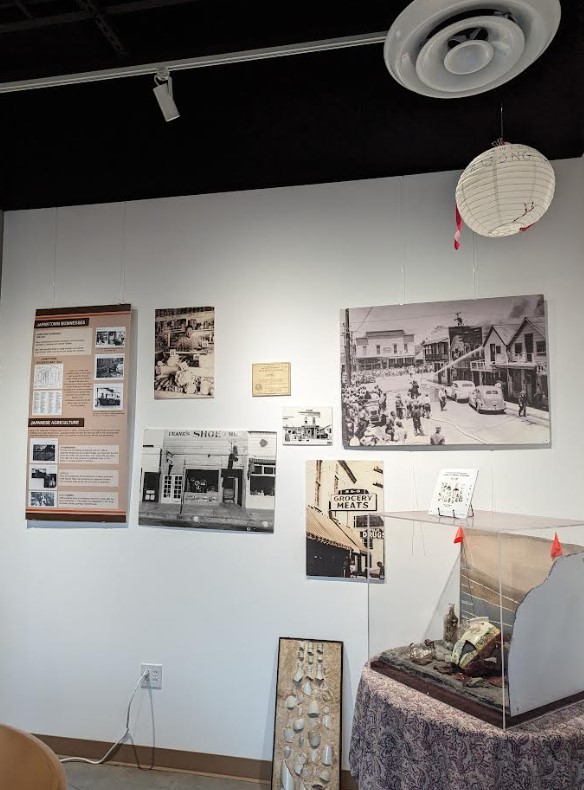By Larry Hirahara
My name is Larry Hirahara; I was cited in the article Salinas California’s Chinatown has faded into a memory, by Eileen Hu. The article is an accurate description of the history of Salinas Chinatown. Through no fault of her own, Hu was not able to contact local people like myself about our perspective on the present state of Salinas Chinatown. I have been volunteering on Chinatown revitalization for over twenty years and have been actively engaged in its planning and implementation.
This response does not contradict, but rather expands on, the true nature of the current and future conditions of Chinatown. While the author, without any direct input, had a somewhat negative conclusion, we believe the larger picture is one of progress and unique collaborations.
The stakeholders advising on Chinatown’s revitalization still meet and actively work toward our goals. We were initially supported by the Service Learning Program of California State University Monterey Bay (CSUMB), including its Project Director, Ken Feske, who spent over half his time in Chinatown at the CSUMB Learning Center.
In the initial planning process, community feedback developed priorities for revitalization, and the Chinese Community was adamant that the history and culture of Chinatown should be preserved. Asian Cultural Experience (which recently added “of Salinas” to its name: ACES) was formed as an action group (sub-committee) to develop the preservation platform.
The Republic Café was a well-known Chinese Restaurant on Soledad St. The Athye Family owned the property and lived on the upper floors of the three-story building. After the restaurant closed, the family indicated they were willing to have it developed into a cultural museum.
A HUD Grant acquired by CSUMB was intended to stabilize and renovate the building to begin the renovation of the future museum. CSUMB and the City of Salinas began by re-roofing the Republic Café. However, asbestos was discovered in the interior, which exhausted the balance of the grant and left the building without power or water.
Recently, the City of Salinas purchased the property from the Ahtye family. They will bring the building up to code, with an understanding that ACES will develop the interior of the future Asian American museum and cultural center. This represents an important step toward our revitalization goals.
In our project to preserve and develop the Republic Cafe, CSUMB has supported ACES in various ways. They secured the building’s National Register of Historic Places designation. CSUMB Museum Studies sent service-learning students into Chinatown and were awarded grants to design the museum/cultural center. CSUMB oral history classes did extensive video interviews about the history of Asians in Chinatown as well as current residents. They have contributed both physical and virtual content to ACES’ archives.

The most unique aspect of ACES has been the collaboration between the three Asian Communities—Chinese, Japanese, and Filipino—that began in Chinatown because they could not live anywhere else. Our preservation goal includes educating the public about the history and culture of these communities.
This unique collaboration was demonstrated by the development of an exhibition series by ACES in partnership with the National Steinbeck Center and CSUMB. Spanning three years, the exhibit followed the historical sequence of immigration: Chinese first, Japanese second, and Filipinos third. The exhibition series created extensive archives and historical content to be stored in the Republic Café museum.

Ultimately the preservation story we wish to tell is the immigrant story. To expand on the current situation, it must be recognized that the Filipino story in the Salinas Valley and Monterey County is one that is not widely known or taught. ACES has been able to recognize and understand the ethnic history of each group through our collaborative process. We work hard to tell that story, not only through our popular Asian Fair, but through continuing educational outreach, partnerships, walking tours, and the Republic Café project.
Admittedly, a challenge is that parts of Chinatown may not be as welcoming as we desire. Committed stakeholders continue to advocate for humanely providing for the unhoused and sustainably cleaning Chinatown. Conditions have been much worse, and much of the improvement is under cover, but we feel that the City and government of Salinas are committed to creating a revitalized Chinatown.
AsAmNews is published by the non-profit, Asian American Media Inc.
We are supported through donations and such charitable organizations as the Robert Wood Johnson Foundation. Donations to Asian American Media Inc and AsAmNews are tax-deductible.
Please also follow us on Instagram, TikTok, Facebook, YouTube and X.

